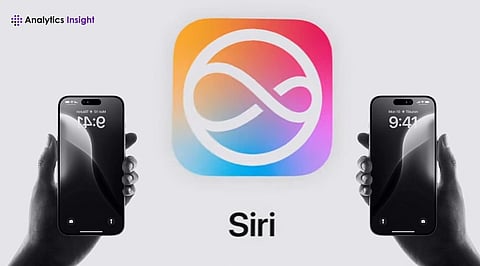

Apple’s major Siri upgrades have been delayed, pushing key AI features possibly into 2026.
Internal challenges and cautious leadership are slowing Apple's AI innovation.
Competitors like Google and Samsung are pulling ahead in the AI assistant race.
Apple faces mounting scrutiny over its artificial intelligence (AI) strategy, particularly concerning its voice assistant, Siri. Despite significant investments and strategic hires, the company appears to be lagging behind competitors in the rapidly evolving AI landscape.
Apple's efforts to enhance Siri with advanced AI capabilities have encountered numerous setbacks. Features such as on-screen awareness and personal context understanding, initially slated for release with iOS 18.4, have been delayed multiple times. Internal sources suggest that these features may not be available until 2026, if at all.
The delays have been attributed to a combination of technical challenges and leadership issues within Apple's AI division. Reports indicate that ineffective leadership and a lack of ambition have hindered progress, leading to internal dissatisfaction and concerns about the company's direction in AI development.
To revamp its AI offerings, Apple introduced "Apple Intelligence," a suite of generative AI tools aimed at creating a more personalized user experience. This initiative includes features like AI-enhanced photo editing, writing tools in the Mail app, and integration with OpenAI's ChatGPT for more natural interactions.
However, the rollout of these features has been uneven. While some tools have been introduced, the most anticipated upgrades to Siri remain absent. The integration of ChatGPT into Siri, for instance, has raised privacy concerns, despite Apple's assurances of maintaining user data confidentiality through on-device processing and private cloud compute systems.
Also Read: Apple Intelligence Is Here: A Simple Guide To Activating It
Apple's struggles in AI are particularly pronounced when compared to advancements by competitors. Companies like Google, Amazon, and Microsoft have made significant strides in AI, offering more sophisticated and responsive virtual assistants. Samsung's integration of Google's Gemini assistant into its devices exemplifies the kind of seamless AI experience that Apple aims to achieve but has yet to deliver.
Analysts warn that continued delays could erode Apple's competitive edge. As users become accustomed to more capable AI assistants from other providers, expectations rise, making it increasingly challenging for Apple to meet user demands and regain its leadership position in AI innovation.
Apple's commitment to user privacy, while commendable, has inadvertently slowed its AI development. The company's cautious approach to data collection and processing limits the amount of information available for training AI models, potentially impacting the performance and capabilities of its AI tools.
Moreover, the internal culture within Apple's AI division has been described as risk-averse, with reports of a lack of clear direction and ambition. This environment has led to concerns about the company's ability to innovate and keep pace with the rapid advancements in AI technology.
Also Read: Apple Struggles to Keep Up as Siri AI Upgrades Face Major Delays
Despite the challenges, Apple continues to invest in AI research and development. The company has established AI teams in locations like Zurich, focusing on developing large language models (LLMs) to enhance Siri's conversational abilities. These efforts indicate a commitment to improving its AI offerings, though the timeline for tangible results remains uncertain.
The upcoming Worldwide Developers Conference (WWDC) 2025 may provide insights into Apple's AI roadmap. However, reports suggest that significant Siri upgrades are unlikely to be a major focus at the event, potentially signaling ongoing development challenges.
Apple's journey in AI and the evolution of Siri reflect a complex interplay of ambition, technical challenges, and cultural factors. While the company has made notable strides in integrating AI into its ecosystem, the delays and internal hurdles underscore the difficulties in maintaining a leadership position in a rapidly advancing field. The coming months will be critical in determining whether Apple can overcome these challenges and deliver on its AI promises.
